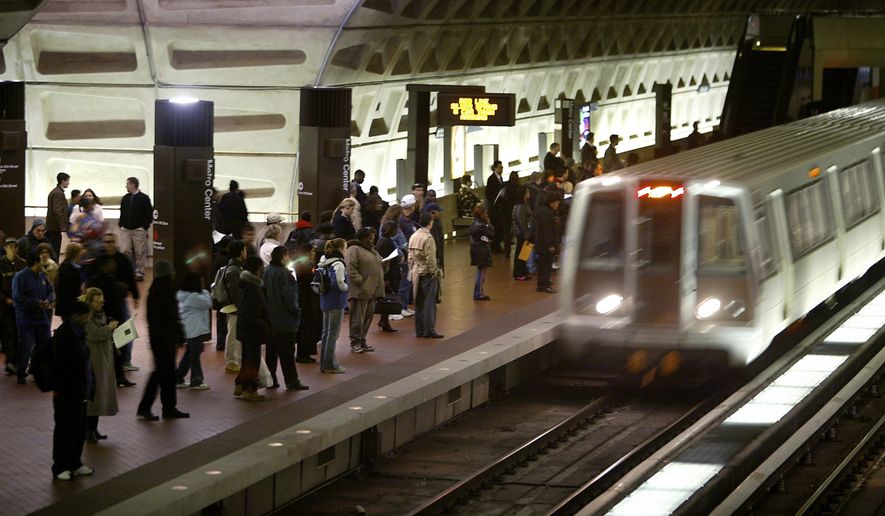In a meeting Monday with its two biggest labor unions, Metro agreed to raise wages for office employees and stop outsourcing some janitorial jobs to private contractors.
But the transit agency’s concessions won’t necessarily remove the possibility of a labor strike.
“Today’s meeting was the fourth time the parties have met since the union’s membership authorized a Metro strike in response to the general manager’s failure to bargain in good faith,” said David Stephen, spokesman for Amalgamated Transit Union Local 689. “[General Manager Paul J.] Wiedefeld, again, chose not to attend the negotiations.”
One of Local 689’s main complaints was that Metro outsourced janitorial positions, which resulted in a loss of union jobs and poorer sanitation.
The transit agency agreed to return 31 of those 271 jobs to Metro employees, saying the agency would continue working with the union to “identify common ground and protect current employees, while containing cost growth.”
Local 689, which represents 8,000 of Metro’s 12,500-strong workforce, has waited for binding arbitration over contracting disputes with Metro since last fall. On July 16, thousands of union members voted to hold an illegal strike and shut down the Metro system if their demands were not met.
Talks between the union and Metro will resume Tuesday.
“Local 689 now believes that [Metro] has recognized its contractual violations,” Mr. Stephen said in a written statement, declining to tell The Washington Times whether that means a strike is off the table.
In the meantime, Metro’s other union — AFL-CIO Office and Professional Employees International Union Local 2 — said it was “pleased” with its deal on Monday.
Metro not only promised Local 2 it would not outsource jobs but also gave a wage increase to the union’s 1,000 members, most of whom are office workers.
“After the [transit] authority began negotiations proposing a complete wage freeze and significant take backs, the committee was able to achieve meaningful wage increases both retroactively and going forward,” said Local 2 President Daniel Dyer, whose union has fought for a wage increase for the last two years.
In exchange, the union agreed to let Metro raise the health care insurance contributions of its members.
The higher wages may increase Metro costs, but increasing the money workers put toward their health care could reduce the transit agency’s health care expenditure by $2.3 million, Metro officials said.
“As with any constructive negotiation, we didn’t get everything we hoped for and neither did Local 2; however, this agreement fairly compensates employees while reducing Metro’s costs,” Mr. Wiedefeld said Monday in a statement.
“We came together to make the hard choices that are necessary to keep Metro’s budget from growing beyond what the region can afford,” the general manager said, referring to his promises to the District, Maryland and Virginia to cut costs in exchange for $500 million in dedicated funding given earlier this year.
Local 2’s new contract is for five years, but it will not take effect until it is approved by the Metro Board, which returns from its recess in September. The new rules for custodial staff were effective immediately.
“I want to commend both management and Local 2 union officials for their leadership on this, which shows what people bargaining in good faith can accomplish when they work to find common ground,” Metro Board Chairman Jack Evans said Monday.
• Julia Airey can be reached at jairey@washingtontimes.com.




Please read our comment policy before commenting.